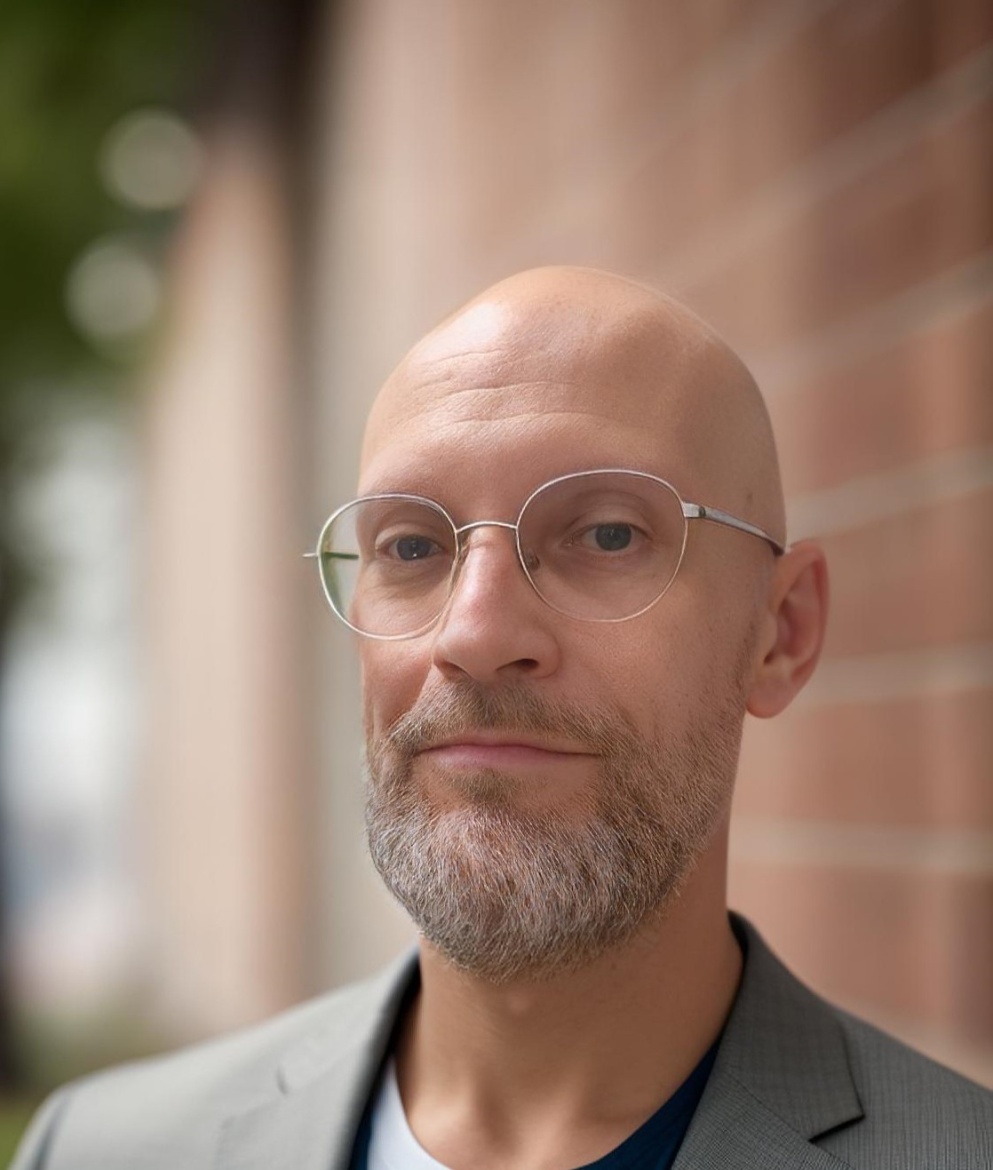The Chinese are said to have had a curse - 'may you live in interesting times' and the last few years have certainly been interesting times! In such circumstances it is good to take stock, and ask, what are the challenges ahead of us and those Christians working in global health.
Changing aid climate
The US administration has proposed significant reductions in the aid and development budget. 1 This includes reducing funding for work on containing infectious disease outbreaks by the Center for Disease Control (CDC) in Atlanta. 2 Given the World Health Organisation's recent poor track record on this issue, 3 the withdraw of the CDC's support could further weaken the global response to the next major infectious disease outbreak.
However, the issue at the top of most of the development community's concerns is that the Trump administration has reinstated the so-called 'Mexico City Policy' or 'Global Gag Rule'. This means that the US Department for Aid and International Development (USAID) requires any aid agency that receives US funding not to provide, counsel or inform women about abortion. 4 This has already slashed funding from Marie Stopes International (MSI) and International Planned Parenthood Federation (IPPF) to the tune of US$80 million and $100 million respectively. 5 Many are concerned that this will hit smaller agencies, estimating that over twelve hundred NGOs will between them lose $2.2 billion in funding. 6 While other funders have increased funding to some of these agencies to the sum of around $450 million, the shortfall remains significant. 7
However, a lot of family planning services continue but are being provided by agencies that do not provide or counsel abortion, and others are changing their policies to fit in with the Mexico City Policy. So, despite the outrage in much of the development community, faith-based organisations in particular are continuing to provide effective services, stepping into the breach left by MSI, IPPF and their like. 8
The consensus that IPPF and MSI have created about family planning is being challenged. 9 Most countries, and indeed the UN itself, do not include abortion in family planning definitions. Furthermore, the track record of bodies like IPPF and MSI with respect to maternal and child health is increasingly in question. 10 While many in the development community are 'up in arms' about the current US funding policy, the impact on maternal and child health may well be exaggerated. 11
However, there is still a risk that maternal and child health could suffer a real gap in provision, and it is a huge challenge, particularly for Christian faith-based organisations (FBOs) to continue to step up to the plate and fill the gaps in existing services.
Conflict
At the start of 2017, the war in Iraq and Syria was the big concern, forcing millions to flee and become refugees, while millions more were left as internally displaced people (IDPs) within their war-wrecked countries. But by the end of the year, while that war had begun to wind down, 12 the biggest health crisis shifted to Yemen where three years of civil war has led to the biggest outbreak of cholera on record, 13 the re-emergence of long controlled infectious diseases such as diphtheria, 14 and near total infrastructural devastation that means the country could take a generation or more to recover.
Meanwhile, civil wars and conflicts in Central African Republic 15 and South Sudan 16 and the persecution of the Rohingya in Myanmar 17 leave many unable to grow food, get clean water or access health services, while also generating refugee situations of their own. The politics around these conflicts mean these situations could rumble on for years to come.
Health workforce
In the UK, we are seeing one in ten nursing vacancies unfilled 18 and a shortage of General Practitioners and junior doctors. 19 The US and other Western nations are facing comparable shortages. This creates an opportunity for millions of doctors, nurses and other skilled health workers from developing nations to migrate, but this leaves their own nations even shorter of professionals than the West.
Another, largely ignored issue within this is that most of these health workers are women (at least 75% 20). While the #MeToo movement 21 started in the West with celebrities, the realities not just of sexual harassment, but also of discrimination and lack of access to education, good pay and chances for promotion that women face in many parts of the world, mean the health workforce is still often ignored and under-resourced. 22
Just increasing our investment in training nurses has an impact not only on health, but also on development and the status of women in society. 23 But the same challenges face midwifery, medicine and other health professions, and one of the issues at the heart of this is the status of women and whether female healthcare leaders 24 will be listened to at national and global levels.
At present, the global health workforce is short of 18 million trained health workers. To achieve the Sustainable Development Goals by 2030 the World Health Organisation reckons the world needs another 40 million health professionals. 25 Without adequate pay, training, working conditions and recognition, this simply won't happen. And this is not just a developing world issue. As the recent NHS winter crisis reminded us, the wealthy nations of the world are also falling alarmingly short of health professionals. The only difference is that we can afford to poach them from poorer countries!
And the good news?
Has it all been bad in the past year? And is the future all grim? There turn out to be many encouragements and guarded reasons for optimism.
Firstly, some disasters never happened. A famine in South Sudan was averted, and overall the chances of people dying of famine has dropped globally to 0.06% of the figure in the 1960s. Early warning systems, better coordination of aid and emergency relief have all reduced the incidence of famine. 26
We also saw fewer deaths from natural disasters, such as floods, droughts, and (despite the awful hurricane seasons in the Gulf of Mexico last autumn) high winds.
Secondly, the global community is making progress on coordinated preventative health programmes. Vaccination rates are at their highest ever (86%) for the major infectious illnesses (diphtheria, pertussis, measles, Hepatitis B and rotavirus). New Zealand has eliminated measles in the last year, joining Australia and North America. Overall deaths from measles have now dropped from 550,000 in 2000 to 90,000 in 2016. It is significant progress, but there is still a way to go. 27 Meanwhile, only 19 cases of wild poliomyelitis were recorded on earth in 2017. 28
Life expectancy continues to rise in most countries (the UK being a notable exception 29). Infant and maternal mortality rates are also coming down. Malaria vaccines will be rolled out to children in some of the most at-risk regions, and clinical trials of an HIV antibody that offers the potential of an effective preventative measure begin soon. 30
Finally, poverty is being reduced. Fewer people are living daily on less than $2 (£1.50). About 200,000 people are being lifted out of extreme poverty every day. This is mostly due to a currently booming global economy. The potential of poorer nations and communities to benefit from a strong global economy remains a challenge and an issue of social justice. Nevertheless, one of the surest ways to improve health is to improve personal and national wealth. Literacy has also continued to increase, as well as access to primary education (especially for girls) - both linked with increased health and well-being for communities. 31
Challenges for Christians
Persecution of Christians continues to be a major global issue 32 - one that has been increasingly acknowledged by the West (albeit reluctantly).
We are also unpopular because we are challenging the consensus on issues like gender, sexuality, family planning, personal autonomy and freedom of conscience. 33 The Western aid and development movements do not particularly like working with us, and while bodies like the WHO and UN are recognising the need to work with faith communities, Christians who hold to their values and beliefs are more likely to be marginalised. Yet the narratives of the secular West are increasingly challenged and other voices are being heard. I also suspect that the relevance of the WHO and UN in global health will change in the coming year. 34
In 2017, we remembered the 500th anniversary of the start of the Reformation. Its impact on the world continues to this day, not least in medicine and healthcare. 35 Christians of all theological persuasions continue to minister to the poor and sick in the most deprived areas of the world because of our faith in a Saviour who reached down into the mess and misery of humanity to reconcile us to God. Let's continue to challenge the world's values not just by our words, but also by our actions.
Steve Fouch is CMF Connections Manager
































